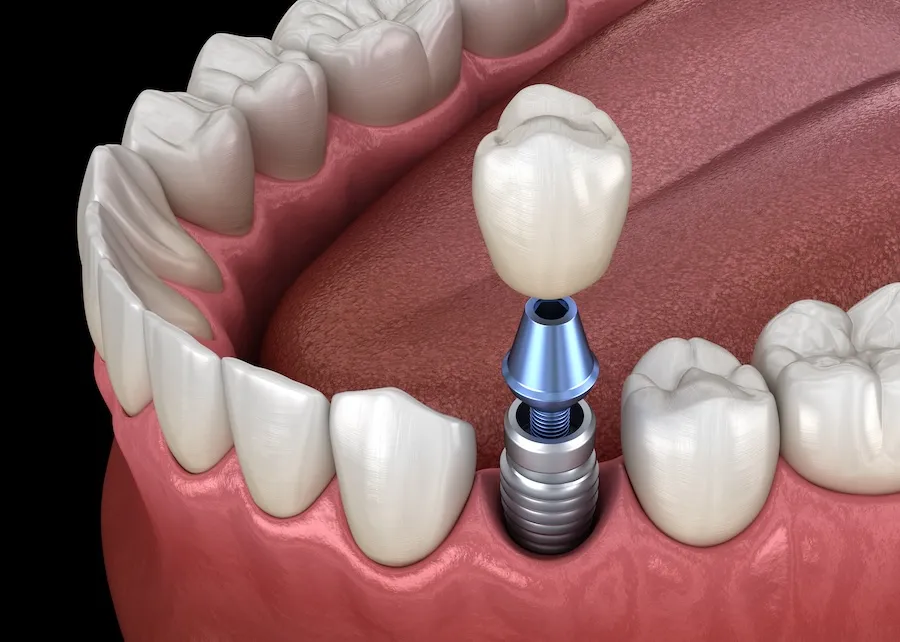Smart Dental Implants: The Next Step in Digital Dentistry?
Dental implant technology has advanced significantly over the past few decades. Today, smart dental implants are emerging as the next frontier in digital dentistry, integrating cutting-edge technology with traditional implantology. These innovative implants have the potential to improve treatment success rates, enhance patient monitoring, and streamline the overall implant process. With the integration of dental software, smart dental implants are revolutionizing restorative dentistry, making procedures like single implants more precise and predictable.
What Are Smart Dental Implants?
Smart dental implants are revolutionizing restorative dentistry by integrating advanced technology to enhance functionality and longevity. Unlike traditional options, these intelligent devices can monitor bone health, detect infections, and even facilitate better integration with surrounding tissues. For patients requiring single implants, smart technology ensures precise placement, improved stability, and real-time health tracking, leading to better long-term outcomes. With innovations like AI-powered diagnostics and biofeedback sensors, smart dental implants offer a future where dental restorations are not just passive replacements but actively contribute to oral health management.
Unlike traditional implants, which rely on periodic manual check-ups, smart dental implants offer a proactive approach to dental care. They provide insights into osseointegration (the process of implant fusion with the jawbone) and help detect early-stage implant failures before they become severe.
The Role of Dental Software in Smart Implants
Dental software plays a crucial role in the success of smart dental implants. It processes data from the implant’s sensors and converts it into actionable insights. Here’s how dental software enhances the functionality of smart implants:
1. Real-Time Monitoring – Dental software can continuously track the status of a smart implant, providing alerts in case of potential failures or infections.
2. AI and Predictive Analytics – Machine learning algorithms analyze implant data to predict complications before they occur, improving patient outcomes.
3. Integration with Digital Workflows – The data collected from smart implants can seamlessly integrate with CBCT scans, intraoral scans, and CAD/CAM systems to optimize treatment planning.
4. Remote Patient Management – Patients with smart implants can be monitored remotely, reducing the need for frequent in-office visits and enhancing post-operative care.
Advantages of Smart Dental Implants
The development of smart dental implants presents numerous advantages for both patients and dental professionals. Some key benefits include:
– Increased Implant Longevity: Continuous monitoring allows for early detection of mechanical stress or infection, preventing implant failure.
– Enhanced Patient Experience: With smart implants, patients can avoid unnecessary dental visits while still receiving quality care.
– Improved Precision in Placement: Advanced sensors can assist in guiding implant placement more accurately, reducing complications associated with misalignment.
– Better Integration with Digital Dentistry: The combination of single implants and dental software ensures a more streamlined and effective treatment process.
Challenges and Considerations
Despite their promising benefits, smart dental implants still face some challenges:
– High Costs: The technology involved in smart implants may increase overall treatment expenses.
– Data Security Concerns: With digital connectivity, ensuring patient data privacy and cybersecurity is crucial.
– Technical Limitations: Implant sensors need to be biocompatible, durable, and capable of functioning in the oral environment without frequent maintenance.
The Future of Smart Dental Implants
As technology continues to evolve, smart dental implants will likely become more widely available and cost-effective. Future developments may include:
– AI-Driven Treatment Recommendations: AI-powered dental software could provide personalized care plans based on real-time implant data.
– Self-Healing Materials: Research into self-healing implant surfaces could enhance osseointegration and longevity.
– Wireless Powering Systems: Eliminating the need for batteries by using bioelectricity or other wireless power sources.
Smart dental implants represent the next step in digital dentistry, offering improved patient outcomes, precision, and efficiency. By integrating with dental software, these advanced implants provide real-time monitoring and predictive analytics, making treatments like single implants more successful. Although challenges exist, the future of smart implants is promising, paving the way for a new era in dental implantology.











Post Comment